The health of your gut is crucial to the well-being of the rest of your body, which means it’s important to take care of it whenever you can. For one, gut health has been shown to be important for keeping your immune system healthy, and some studies have found a connection between a consistent imbalance in the gut microbiome and autoimmune disorders. Research also suggests that your gut microbiome may affect your central nervous system, which controls your brain function. When it comes to caring for your gut, experts recommend certain foods that can affect it, but they also call out some of the worst drinks for your gut health, too.
Drinking the wrong types of beverages can potentially have a damaging effect on your gut. These drinks are often the ones higher in sugar, artificial sweeteners, too much acidity, or other ingredients that may disturb the peace of your gut and digestion. To learn more, we talked with dietitians to learn why these beverages are ones you may want to minimize in your diet and why reaching for them regularly may have both immediate and lasting damage to your gut.
Keep in mind that many of these beverages can be consumed in moderate quantities with no negative side effects. And with some of these drinks, the adverse reactions that happen after consuming them may only occur in sensitive individuals, so it’s best to consult a medical professional if you’re concerned about how one of the beverages below is affecting your health.
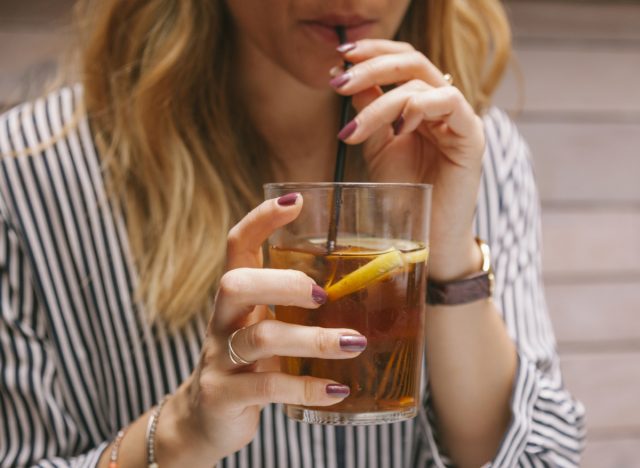

According to Toby Amidor, MS, RD, CDN, FAND, award-winning nutrition expert and Wall Street Journal bestselling author of The Family Immunity Cookbook, some of the worst drinks for gut health are those filled with added sugar, such as lemonade and sweetened iced tea.
“A 2020 published study found that a diet high in sugar can promote inflammation and shift the balance between the ‘good’ and ‘bad’ gut microbiome, which can lead to health consequences,” says Amidor.
If you’re craving a cold, sweet drink, opt for a 100% fruit juice that doesn’t contain any added sugar.
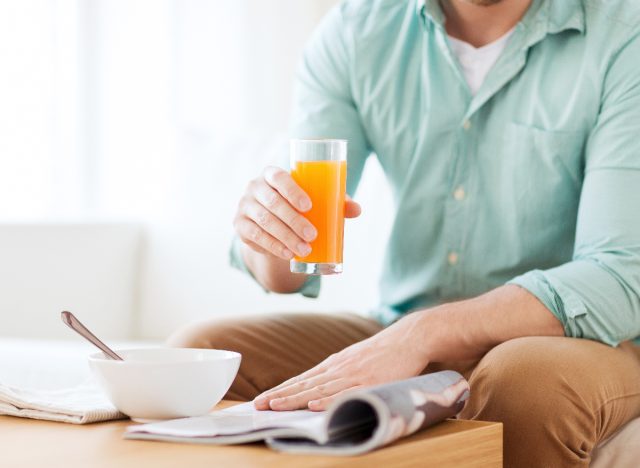

Speaking of sugar, another drink that you may want to limit if you’re worried about gut health is juice made with added sugar.
“Drinks that are made mostly from added sugar with no nutritious value can alter the balance of the gut microbiome to favor the ‘bad’ bacteria,” says Amidor. “If you’re going to opt for juice, choose 100% fruit or vegetable juice, as those do provide vitamins, minerals, and phytonutrients and count towards your daily recommended intake of fruits and veggies.”


If you’re grabbing those energy drinks to relieve your daily fatigue, you may want to think again. According to Lauren Harris-Pincus, MS, RDN, founder of NutritionStarringYOU.com and author of The Protein-Packed Breakfast Club, those energy drinks “with high caffeine can cause gastritis, inflammation, increased gut motility, and diarrhea.” Pincus explains that the excess caffeine can lead to the stomach secreting more acid than usual, which can worsen reflux symptoms. “It can also cause jitters and increase anxiety which can exacerbate symptoms in people with irritable bowel syndrome (IBS).”
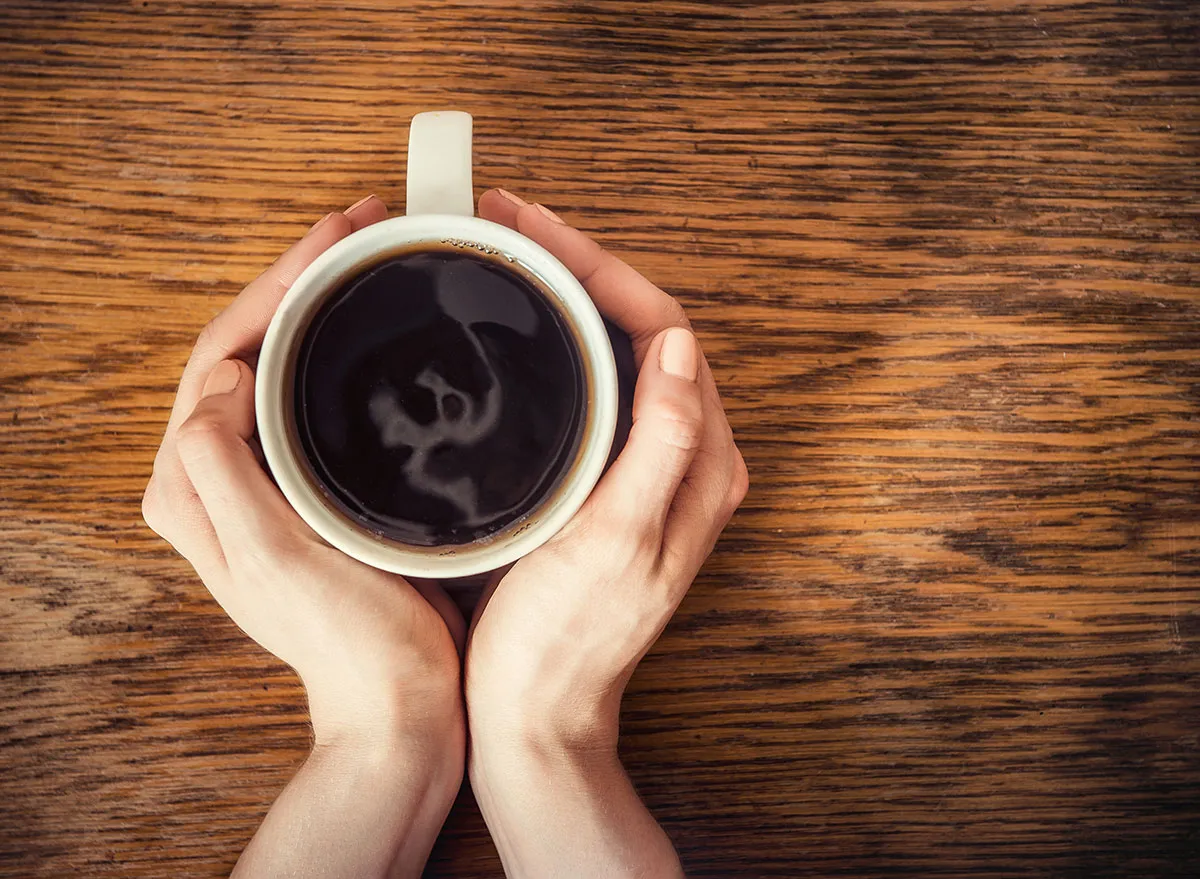

Caffeinated beverages like coffee are stimulants that increase gut motility, which means these drinks can make things move quicker down your gastrointestinal tract. This stimulant effect can trigger loose stools or diarrhea, which can, in turn, lead to dehydration. Additionally, caffeine is a mild diuretic, which means you’ll be running to the restroom to urinate as well. Further, caffeine can increase anxiety and stress, plus make it harder to sleep well and worsen symptoms in people who have irritable bowel syndrome (IBS) or inflammatory bowel disease (IBD).
The FDA recommends a maximum of 400 milligrams of caffeine daily (about 3 cups). However, caffeine affects everyone differently, and some people may metabolize it quicker than others. If you drink less coffee per day or switch to decaf, that can help alleviate some of the symptoms. While drinking coffee in moderation can have significant health benefits, drinking too much can cause these gut issues.
READ RELATED: 7 Easy Ways To Drink More Water & Stay Hydrated
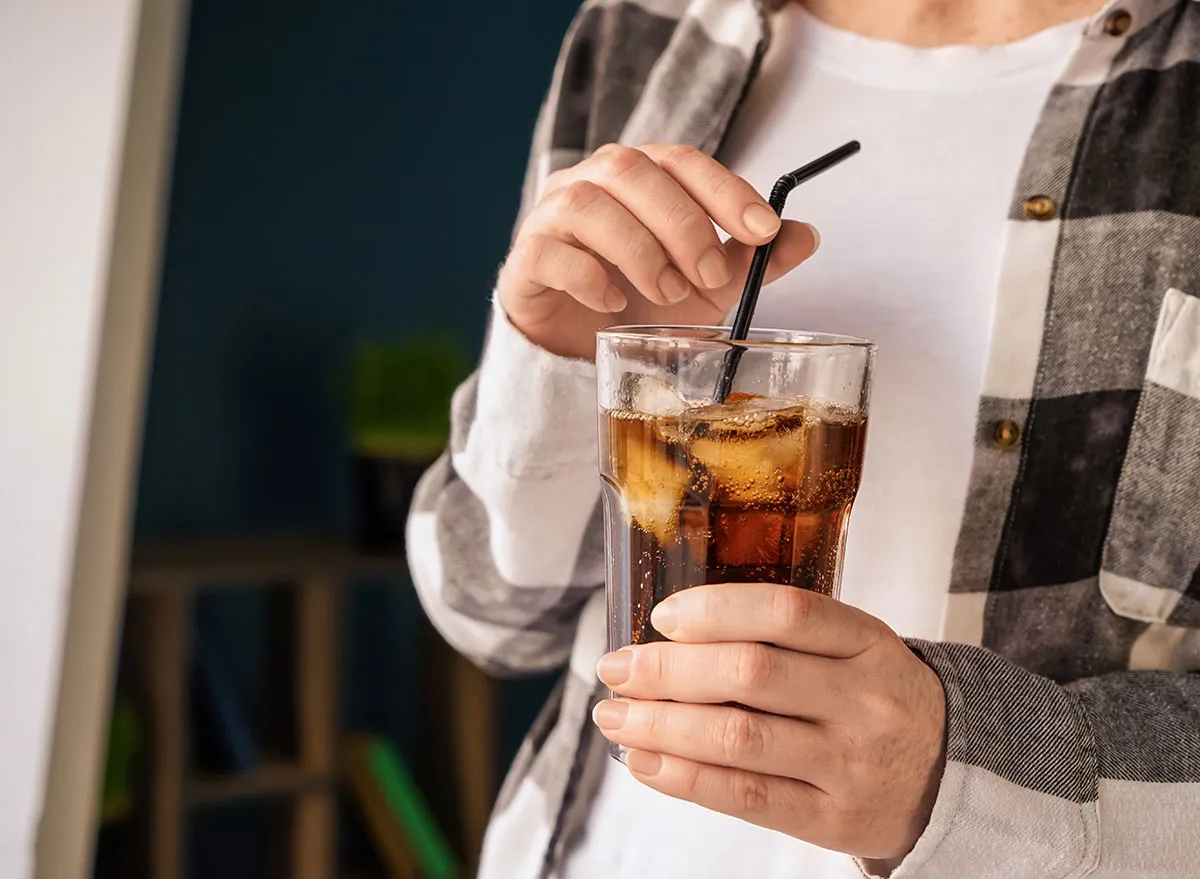

In folks with IBS or IBD, drinking a lot of refined sugars, like those in soda, can lead to gastrointestinal distress since the sugar may not be absorbed well into your intestines. This leads to water being drawn into the gastrointestinal tracts and into the bowel in order to dilute and flush out excess sugars, which can lead to loose stool and diarrhea. Research also shows that higher consumption of sugar may alter the gut microbiome in a negative way, leaving it unbalanced and out of whack, which can lead to further issues.
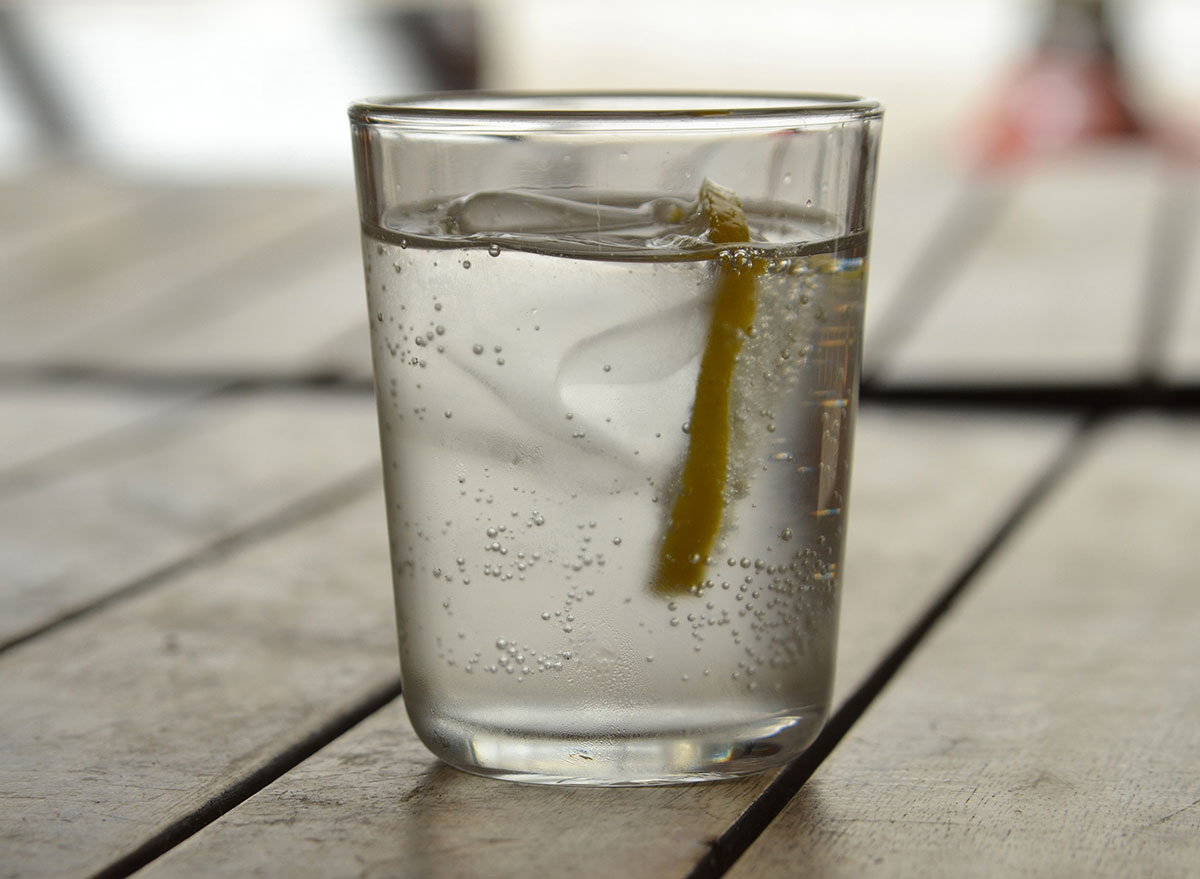

There is some research that links the consumption of carbonated beverages to gastrointestinal distress. For example, an article published in the journal Nutrition, Metabolism & Cardiovascular Diseases, found that there is a possible connection between bubbly drinks and distress in the stomach, but most of the potential distress happens after drinking 300 milliliters or more. In addition, some research suggests that drinking carbonated soft drinks can increase the risk of pancreatic cancer.


Having one too many brewskies, cocktails, or glasses of wine on a regular basis “can affect the microbiota causing an imbalance of the bacteria in the gut with an overgrowth of the bad, unhealthy bacteria. This imbalance leads to inflammation,” explains Joan Salge Blake, EdD, RDN, a nutrition professor at Boston University and the host of the hit nutrition and wellness podcast, Spot On! Further, Dr. Salge Blake explains that chronic alcohol abuse can also damage the cells that line the gut increasing its permeability, which allows bacteria and the toxins they produce to leak into the bloodstream. According to the 2020–2025 Dietary Guidelines for Americans, moderate drinking is defined as a maximum of one drink per day for a woman and two drinks per day for a man. One drink is defined as 12 fluid ounces of beer, five fluid ounces of wine, and 1.5 fluid ounces of 80-proof liquor like rum or vodka.
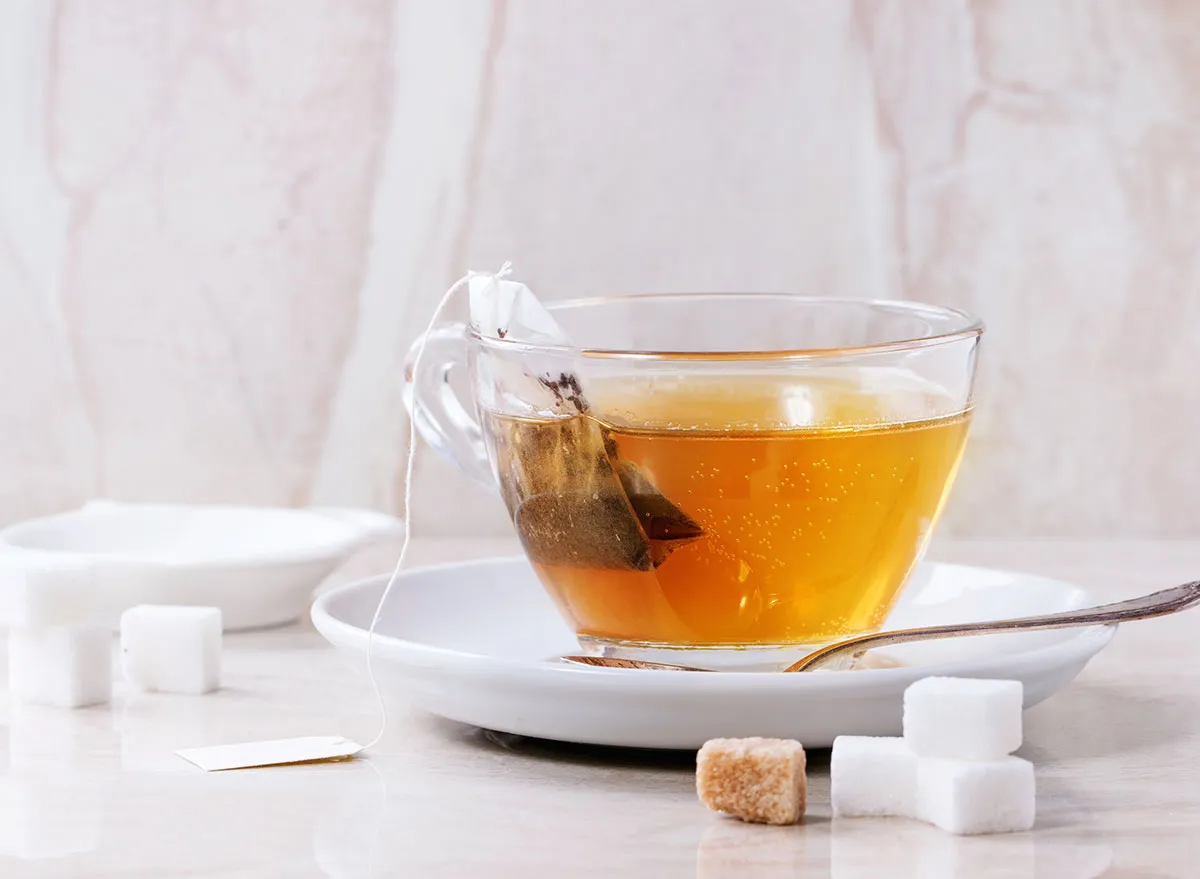

Teas that contain caffeine, like green and black teas, can increase the acidity in the stomach, and this can lead to heartburn in some people. In addition, caffeinated teas have the same issues as seen earlier with coffee. If you love tea, you may want to opt for herbal or decaffeinated. In fact, peppermint tea has been found to have potentially positive impacts on digestion, with multiple animal studies and a couple of human studies showing that it may provide pain relief and help bring stomach comfort.
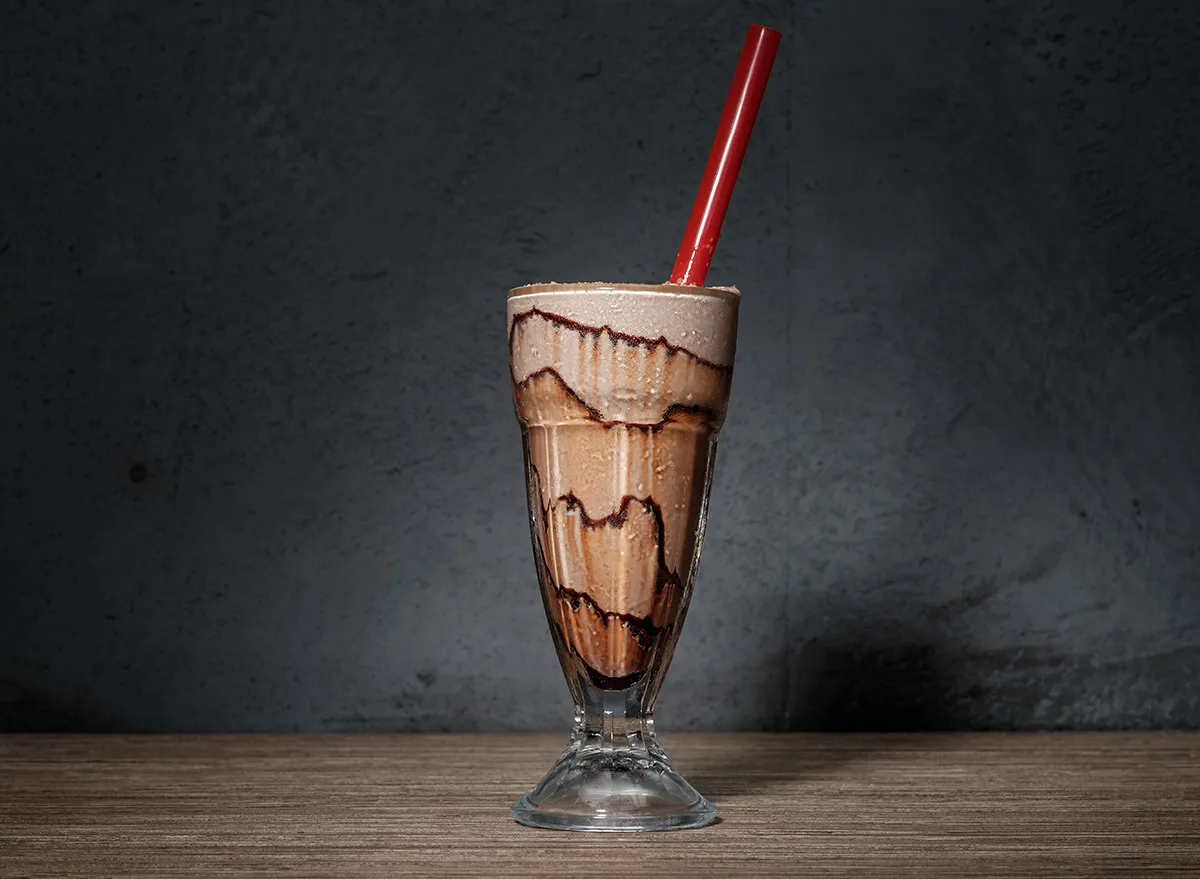

In some people, drinking chocolatey drinks can lead to acid reflux. This is when the acid in your esophagus goes in reverse, causing heartburn. If you experience acid reflux more than twice a week, you may be diagnosed with a more severe form of acid reflux known as gastroesophageal reflux disease (GERD). Other symptoms of GERD include difficulty swallowing, coughing, regurgitating food or sour liquid into the mouth, wheezing, and chest pain especially when you lay down after you eat. According to the Academy of Nutrition & Dietetics website, GERD can be worsened in some people by certain foods, including chocolate, and can trigger a flare-up. If chocolatey drinks exacerbate your acid reflux or GERD, then you probably want to avoid them.
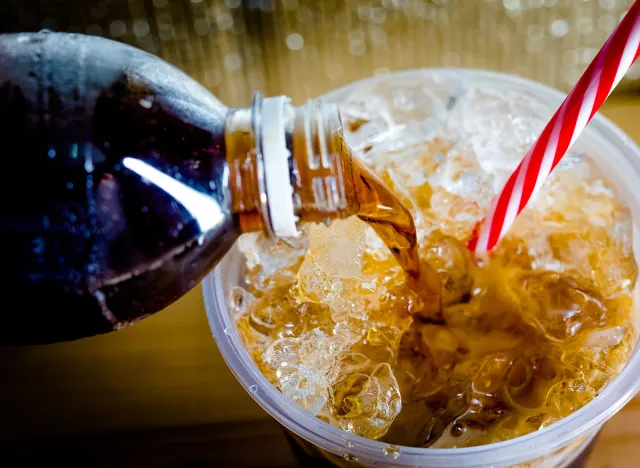

When you’re trying to watch calories, it’s not unusual to turn to zero-calorie beverages that use artificial sweeteners like aspartame and sucralose. Unfortunately, these ingredients can potentially lead to uncomfortable gastrointestinal symptoms such as flatulence, bloating, and diarrhea for some folks. Not only that, but some research has found that artificial sweeteners may lead to an imbalance in the gut microbiome. If you are sensitive to these artificial sweeteners, opt for plain water or flavored sparkling waters that contain no artificial sweeteners. You can also choose a probiotic soda to take the place of your favorite diet drinks.
A previous version of this story was published in April 2021. It has been updated to include additional copy and proofreading revisions, additional research, and updated contextual links.










